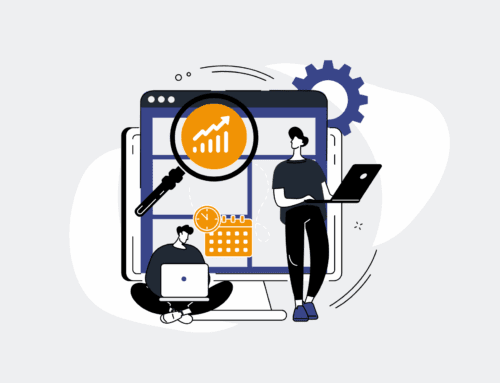The Untapped Power: How AI Resume Parsing Revolutionizes SMB Hiring
The hiring landscape for small to medium businesses (SMBs) has never been more competitive or complex. Faced with limited HR resources, fierce competition for top talent, and an often overwhelming volume of applications, SMBs frequently find themselves at a disadvantage. The manual slog of sifting through hundreds of resumes, searching for keywords, and trying to identify genuine potential, is not just inefficient; it’s a significant drain on time, budget, and morale. This is precisely where AI resume parsing steps onto the scene, not as a futuristic fantasy, but as a practical, impactful solution ready to reshape how SMBs acquire their most critical asset: human talent.
The Shifting Landscape of SMB Hiring Challenges
For businesses with leaner teams and tighter budgets, every hiring decision carries immense weight. A bad hire can cripple productivity, create cultural friction, and inflict substantial financial losses. Conversely, a great hire can ignite growth. However, the sheer volume of applications, particularly in a digital-first world, often leads to promising candidates being overlooked or, worse, to a hurried selection process that prioritizes speed over suitability. Traditional applicant tracking systems (ATS) often provide only rudimentary filtering, leaving much of the intensive analysis to human eyes—eyes that tire, get biased, and inevitably miss details. This bottleneck in the recruitment pipeline prevents SMBs from scaling effectively and remaining competitive against larger enterprises with dedicated, expansive HR departments.
What is AI Resume Parsing, Really?
At its core, AI resume parsing is far more sophisticated than simple keyword matching. It utilizes advanced natural language processing (NLP) and machine learning algorithms to not just extract data, but to understand and interpret the context within a resume. This means it can identify skills, experience, qualifications, and even soft skills from unstructured text, recognizing synonyms, abbreviations, and industry-specific jargon. Instead of merely scanning for “project manager,” it can discern a candidate’s actual responsibilities, leadership experience, and the scope of projects managed, offering a richer, more nuanced profile. It transforms a static document into structured, actionable data, allowing for deeper analysis and comparison against job requirements.
The Tangible Benefits for SMBs
Implementing AI resume parsing offers a suite of advantages that directly address the core pain points of SMB hiring:
Time and Cost Efficiency
The most immediate and obvious benefit is the dramatic reduction in manual review time. AI can process hundreds of resumes in minutes, a task that would take human recruiters days. This translates directly into lower operational costs associated with recruitment, frees up valuable HR personnel to focus on candidate engagement and strategic talent acquisition, and significantly reduces the time-to-hire. Faster hiring cycles mean critical positions are filled sooner, preventing productivity gaps and missed opportunities.
Enhanced Candidate Quality and Fit
By meticulously analyzing and cross-referencing candidate profiles against precise job specifications, AI parsing can surface candidates that human reviewers might miss due to volume or subconscious bias. It focuses on objective qualifications and relevant experience, leading to a higher quality shortlist of candidates who are genuinely a better fit for the role and the company culture. This precision minimizes the risk of hiring mistakes and maximizes the potential for long-term employee success.
Scalability and Competitive Edge
For SMBs with growth ambitions, AI resume parsing provides the infrastructure to scale their hiring operations without proportionally increasing their HR headcount. They can handle larger volumes of applications more efficiently, allowing them to compete more effectively for talent in a broader market. This technological leverage levels the playing field, enabling SMBs to attract and secure talent that might otherwise only be accessible to larger organizations.
Navigating the Challenges: It’s Not Just Plug and Play
While the benefits are compelling, integrating AI resume parsing is not without its nuances. Initial setup requires careful configuration to align the AI’s understanding with your specific job roles, industry jargon, and company culture. Data privacy and compliance with regulations like GDPR or CCPA are paramount. There’s also the crucial need for ongoing human oversight—AI is a tool to augment human decision-making, not replace it entirely. Without proper implementation and calibration, there’s a risk of algorithmic bias creeping in, or even misinterpreting highly specialized resumes. This is where strategic expertise becomes invaluable, ensuring the AI system serves your objectives accurately and ethically.
Strategic Implementation: Beyond the Tool
True success with AI resume parsing for SMBs lies not just in adopting the technology, but in strategically integrating it into an optimized hiring workflow. It’s about designing a system where the AI streamlines the initial stages, freeing up human experts to focus on the human element: interviews, cultural fit assessment, and relationship building. At 4Spot Consulting, we approach this through our OpsMesh framework, beginning with an OpsMap™ strategic audit to identify precise bottlenecks and opportunities. We then move to OpsBuild, customizing and implementing AI-powered solutions.
For instance, we recently partnered with an HR tech client facing overwhelming resume volumes. By implementing AI-driven parsing with Make.com to automate their resume intake, enrich candidate data, and seamlessly sync it to their Keap CRM, we enabled them to save over 150 hours per month. This allowed their team to shift from manual data entry to strategic candidate engagement, transforming their recruitment efficiency and candidate experience. This is not about ‘tech for tech’s sake’; it’s about delivering clear ROI and freeing up high-value employees from low-value work.
Conclusion: Empowering SMBs to Win the Talent War
The impact of AI resume parsing on SMBs is profound, moving them from reactive, resource-constrained hiring to proactive, data-driven talent acquisition. It democratizes access to sophisticated tools, allowing smaller businesses to identify, attract, and secure the best candidates with unprecedented efficiency and accuracy. By embracing AI strategically, SMBs can overcome traditional hiring hurdles, scale their operations, and truly win the talent war. The future of hiring for SMBs is here, and it’s powered by intelligent automation.
If you would like to read more, we recommend this article: The Future of AI in Business: A Comprehensive Guide to Strategic Implementation and Ethical Governance








